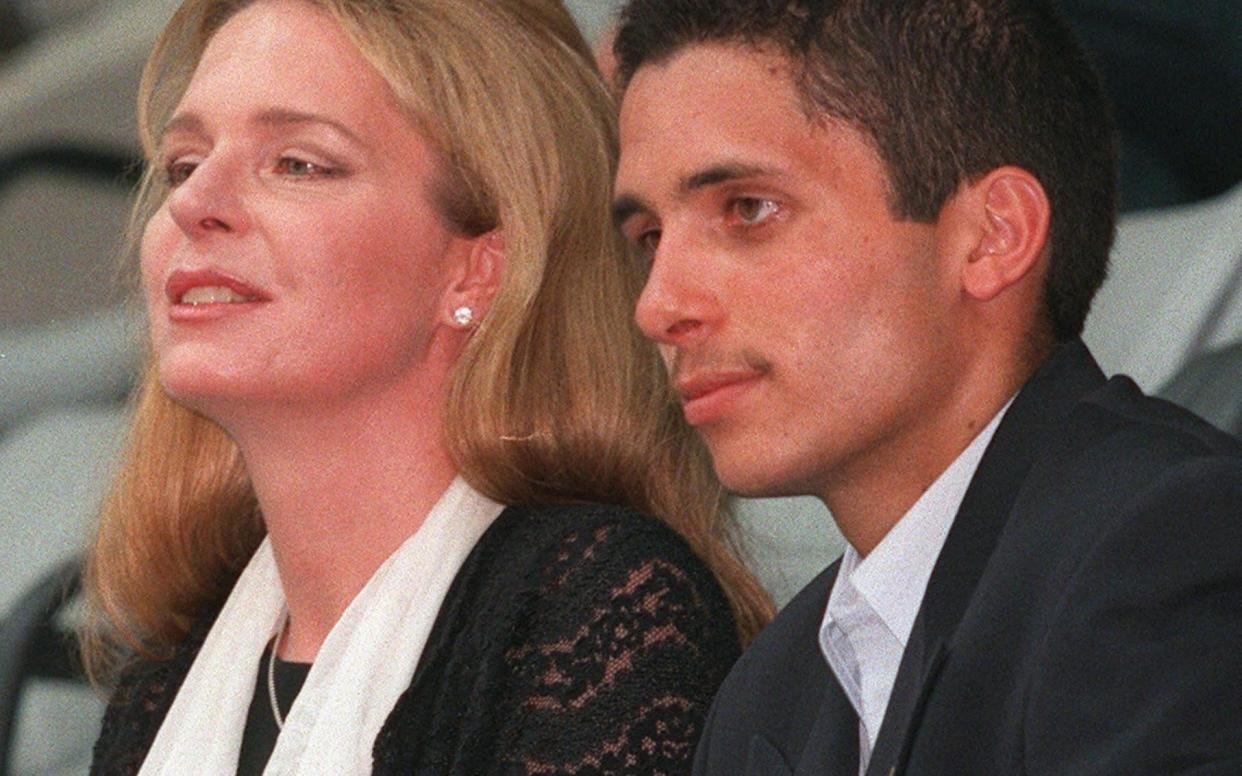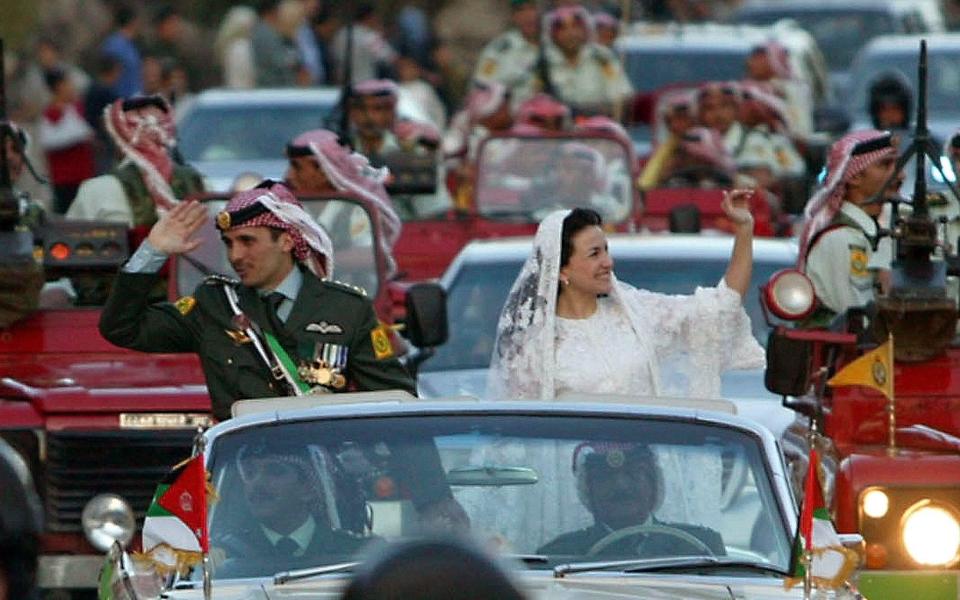Prince's arrest lays bare rifts at heart of Jordan's model royal family

- Oops!Something went wrong.Please try again later.
- Oops!Something went wrong.Please try again later.
With no competing bloodlines or public rivalries, Jordan’s royal family have traditionally avoided the high-profile arrests, purges and coups seen in other monarchies in the Middle East.
It is part of the regime's carefully-cultivated reputation as a Western-allied bastion of stability in a region often marked by chaos.
But the house arrest of Prince Hamzah, and the detention of another junior member of the royal family and multiple other high-profile figures has dramatically pushed previously private rifts into the public eye.
“Praying that truth and justice will prevail for all the innocent victims of this wicked slander. God bless and keep them safe,” tweeted Hamzah’s American born mother, Queen Noor, on Sunday morning.
While the Jordanian government denied that Hamzah had been arrested, a video shared with the BBC by his lawyer showed the prince saying he is “not allowed to go out, to communicate with people or to meet with them, because in the meetings that I had been present in — or on social media relating to visits that I had made — there had been criticism of the government or the king.”

At a press conference on Sunday, Ayman Al Safadi, the Jordanian deputy prime minister, said that Prince Hamzah had been communicating with foreign entities and associates inside Jordan in a long-term plan to destabilise the country.
Bassem Awadallah, a former chief of the royal court, Sharif Hassan Ben Zaid, a royal family member, and 14 other unnamed figures have been detained, he said.
The deputy prime minister said Mr Awadallah, who has business ties in several Gulf states, was planning on leaving the country and was trying to secure a plane for Prince Hamzah’s wife to leave.

Mr Sadafi said efforts had been made to contain the situation within the family but steps had to be taken when the suspects moved past the planning stage and began to discuss when they would carry it out.
Authorities then stepped in to cut communications between Prince Hamzah and the foreign parties.
“I am not the person responsible for the breakdown in governance, for the corruption, and for the incompetence that has been prevalent in our governing structure for the last 15 to 20 years, and has been getting worse by the year,” Prince Hamzah said in the video.
While there have been no public quarrels, relations between Hazmah and his half brother King Abdullah II are thought to have been strained since the former was stripped of his title as Crown Prince in 2004.

Abdullah came to the throne in 1999 when their father, King Al Hussein bin Talal, died of cancer. The new king named Hamzah, who was believed to have been the favourite of Hussein’s 11 children, the Crown Prince, making him next in line.
But Hamzah was stripped of his title just five years later and pushed into the political abyss when Adbullah gave the role to his eldest son, 26-year-old Al Hussein bin Abdullah II.
The schism in the royal family that was laid bare in Saturday night’s unprecedented events has been brewing for some time, according to Lina Khatib, MENA director at Chatham House.
“Some members of the royal family have been trying to instrumentalise Jordan’s economic and governance problems to present themselves as reformists who possess the solution to Jordan’s challenges,” said Ms Khatib. “Their narrative seeks to undermine the King, who continues to enjoy wide support in the West.”
The appearance of cracks in the royal family immediately raised concerns over Jordan’s stability in both the West and the Middle East, with world leaders quickly offering King Abdullah II their support.
It remains unclear whether Prince Hamzah will face any charges or will be dealt with by the family internally.

